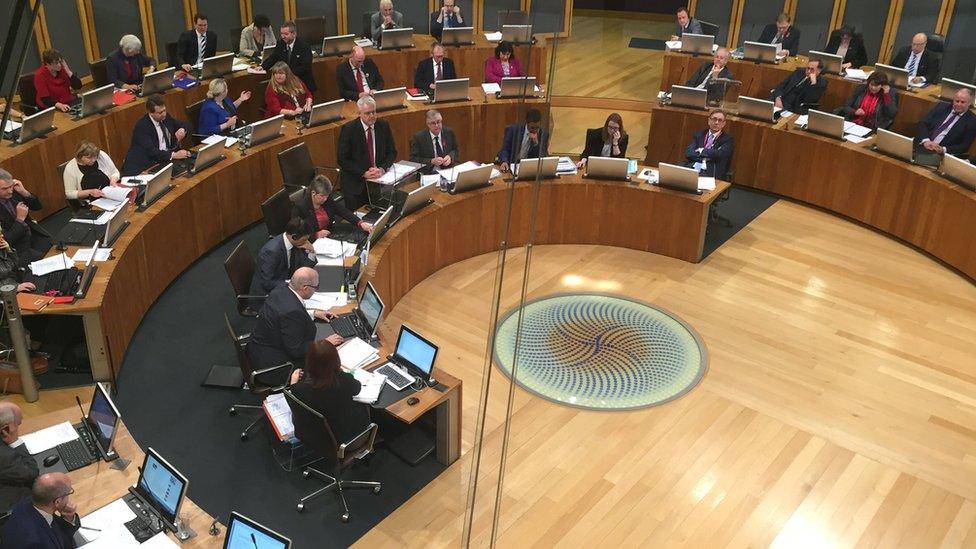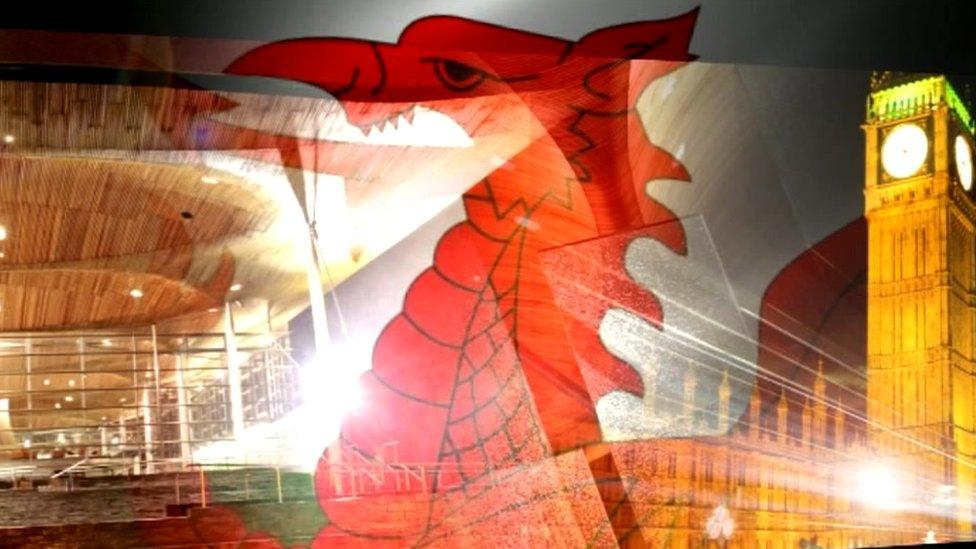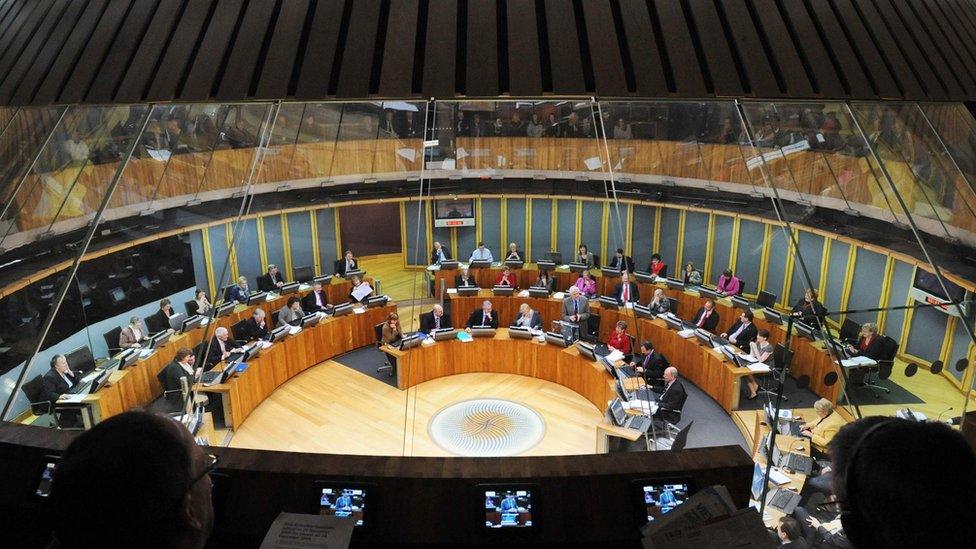Labour AM Baroness Morgan wants party to back Wales Bill
- Published

Baroness Morgan said Labour AMs should support the Wales Bill
The AM and peer who argued Labour's case on the Wales Bill in the House of Lords is to recommend to her party colleagues that they back the new law.
AMs will vote on whether to support the measure on further devolution on Tuesday.
Baroness Morgan said there was more to gain than lose from the bill.
But her Plaid Cymru counterpart Lord Wigley said Wales' devolution settlement will remain "much weaker" than Scotland and Northern Ireland's.
Labour and Plaid are yet to formally decide whether to back the bill, which offers new powers, but was criticised for potentially reducing AMs' abilities.
Wales Office minister Lord Bourne has warned a rejection in the assembly would stop the bill entering the statute books.
On Tuesday, Finance Secretary Mark Drakeford said it was not a "foregone conclusion" AMs would back it.
Baroness Morgan told BBC Wales: "Because of the work that we've done in the House of Lords, we've managed to push back some of the worst aspects of the bill where there was a power grab by the UK government.
"They conceded on a whole range of issues and capitulated under scrutiny and I think its in a different place from where it was."

Baroness Morgan said the UK government accepted it had "overstepped the mark" on clawing back powers on adoption, heating and cooling, railway planning, council tax relief and building regulations.
She said they had "convinced the government to reduce the number of areas where they would reserve the power to the UK government", including on water, buses and compulsory purchase orders.
The bill includes a measure to devolve income tax powers without a referendum.
Baroness Morgan said a financial framework attached to that and a deal with the UK government gave "some security" to Welsh finances in the long term.
"I will be recommending to my colleagues that we vote for the Wales Bill," she said.
The proposed law also changes the mechanism of how devolution works in a bid to make it clearer where power lies.
It has been criticised for not being successful in that aim and Baroness Morgan said there was still a "lack of clarity" as assembly laws may still be referred to the Supreme Court.

The Wales Bill would give AMs more powers over a range of issues
But, she added: "The prospect of us managing to gain a Wales Bill in the next few years I think is very, very slight indeed.
"The chaos with Brexit is going to dominate the political agenda for the next decade.
"Theresa May has not shown any commitment to Wales at all, or any interest in Wales."
The Labour AM for Mid and West Wales described Lord Bourne as "probably... the most pro-devolution friendly Tory person that we know of".
"If he couldn't land a better deal on this it is unlikely that anyone else is going to land a better deal."

Lord Wigley said the Wales Bill undermines the Silk Commission's conclusions
Wales Office minister Guto Bebb welcomed Ms Morgan's comments, and said the bill was a "model for a better settlement for devolution".
But a much more critical line was taken by Lord Wigley, the former Plaid MP who spoke for the party in the House of Lords during the passage of the bill.
Writing for the Daily Post, Lord Wigley said that Wales' devolution settlement will remain "much weaker" than those of Scotland and Northern Ireland.
He said the bill undermines the "carefully balanced" package offered in the Silk Commission on further devolution.
"The current bill delivers a pale shadow of Silk's central proposal - that all government functions should be regarded as devolved unless, for good reasons, specifically reserved to Westminster," he said.
He said the assembly would not be allowed to legislate on matters previously within its competence, and said the recent change in the law on organ transplantation "may not have been possible".
'Meagre and grudging'
Lord Wigley said new powers for the assembly were "meagre and grudging", and said "even the much trumpeted intention to bring all Wales' water resources under assembly control is hedged with conditions".
"This inadequate Wales Bill reflects the electoral strength of the national movement in Wales compared to Scotland and Northern Ireland," he said.
But the Plaid peer does not explicitly state how his colleagues in the assembly should vote on Tuesday, adding that for some AMs "it won't be an easy decision".
Labour is expected to decide its position at a group meeting on Monday evening, while Plaid is set to make a decision on Tuesday following consultation with its National Executive Committee over the weekend.
The bill would pass in the assembly if the Tories vote in favour as expected, and if Labour AMs support the law as Baroness Morgan recommends.
Recent additions to the bill during its passage through the Lords include powers over teachers' pay and conditions and confirmation Cardiff Bay has the power to bring in a smacking ban.
- Published20 October 2015

- Published11 January 2017

- Published29 February 2016
